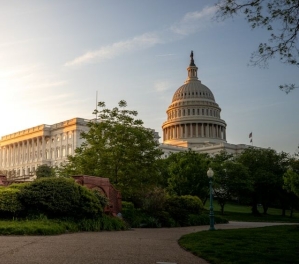
The U.S. Senate has taken a significant step forward in the global fight for religious freedom with the introduction of a resolution calling for the U.S. government to use all diplomatic and sanctions tools at its disposal to address and penalize violators of religious freedom internationally.
The bipartisan initiative, led by Senators Chris Coons, D-Del., James Lankford, R-Okla., Tim Kaine, D-Va., and Thom Tillis, R-N.C., recognizes religious freedom as a fundamental right, “expressing support for international religious freedom as a cornerstone of United States foreign policy, and expressing concern over increased threats to and attacks on religious freedom around the world.”
“The right to religious freedom is an American ideal and the cornerstone of our nation’s identity,” Sen. Coons said in a statement. “Protecting religious minorities must remain central to American foreign policy, and we must call out and condemn attacks on religious people and nonbelievers alike. I’m proud to join with a bipartisan group of colleagues in this effort to make clear that this must remain a priority for our country’s international relations moving forward.”
In 2023, the U.S. Commission on International Religious Freedom identified more than 2,200 individuals targeted by 27 different countries and entities for their religious beliefs, including Christians, Jews, Muslims, Buddhists, Hindus and Sikhs, Coons and Lankford noted. USCIRF also identified the continued destruction of religious sites as an additional threat to religious freedom, they said.
Sen. Lankford said it is the fundamental right of every person “to have a faith, live your faith, change your faith, or have no faith at all,” which must be recognized throughout the world.
“Countries like China, Russia, and Iran continue to target and persecute citizens for living this most basic freedom,” he said. “The United States must continue its international leadership to defend religious freedom, which is why we are reaffirming our commitment to fight for religious freedom around the world.”
In 1786, the Virginia General Assembly enacted a law that laid the foundation for religious liberty in the U.S., noted Kaine, who serves on the Senate Foreign Relations Committee. This precedent, he said, has made the U.S. a symbol of hope for many around the globe living in places devoid of religious freedom, showcasing a society where individuals of various beliefs can coexist peacefully, share communities, schools and workplaces.
“Amid the sharp rise in attacks on faith-based communities, I’m joining my colleagues to send a clear message that we must work together to protect religious freedom at home and abroad,” he said in a statement.
Kristen Waggoner, president and CEO of Alliance Defending Freedom, expressed strong support for the resolution, highlighting the increasing violations of religious freedom globally.
Sean Nelson, legal counsel for Global Religious Freedom at ADF International, also praised the resolution, noting its significance in promoting the religious freedom rights of individuals and communities globally.
The resolution specifically mentions the dire situations in Nigeria, India, Pakistan and Nicaragua, noting that the enforcement of blasphemy laws and the arbitrary detainment of individuals expressing their religious identity.
In Nigeria, over 7,000 Christians were killed for their faith last year, with at least 200 Christians murdered by militants in Plateau State this past Christmas, according to reports.
The resolution highlights the enforcement of blasphemy laws resulting in the death and imprisonment of individuals for their faith, including the cases of Yahaya Sharif-Aminu and Rhoda Jatau. ADF International says it is actively involved in the legal defense of these individuals, advocating for justice and the overturning of blasphemy laws.
In Nicaragua, the government has been detaining and exiling religious leaders critical of its actions. ADF International is supporting the legal defense of Bishop Rolando Álvarez, who was sentenced to 26 years in prison for his advocacy but is now safe at the Vatican.
Pakistan’s religious minorities face severe persecution, including killings, forced conversions and sexual violence. ADF International says its efforts in Pakistan focus on supporting women and girls forced into marriage and conversion to Islam.
The resolution is also supported by Freedom House.
Originally published by The Christian Post





